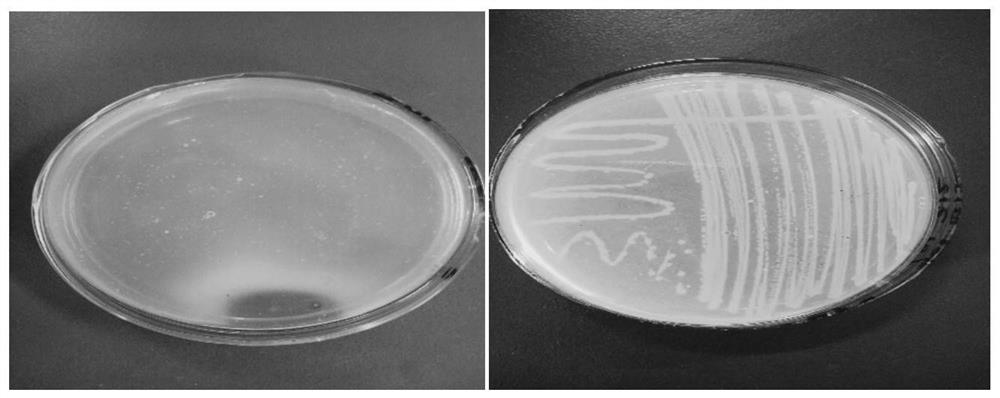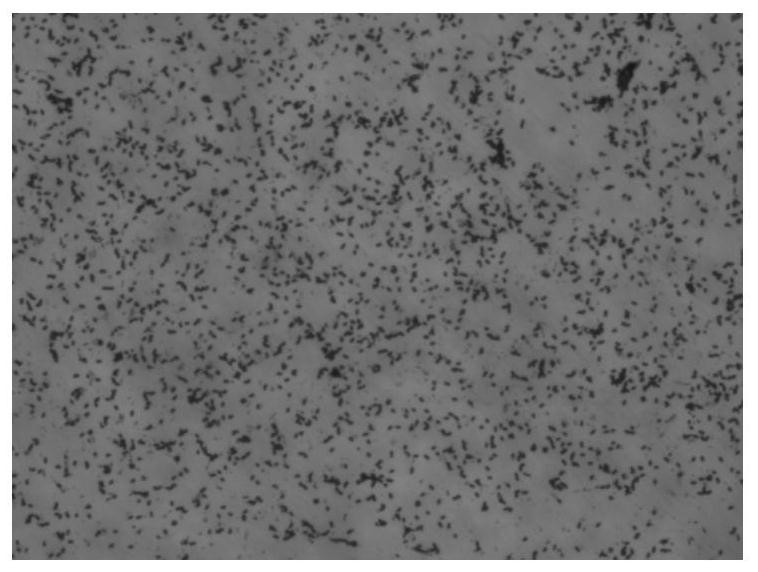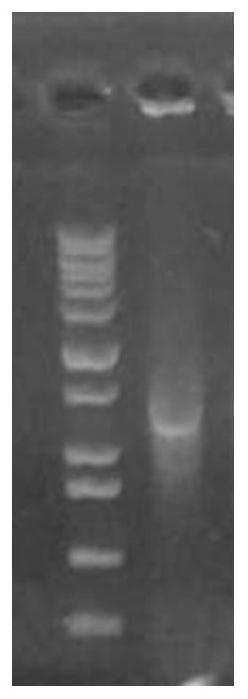A low-temperature protease-producing Exiguobacterium siberia and its application
A low-temperature protease and microbacteria technology, applied in bacteria, microorganisms, microorganisms, etc., can solve the problems of poor thermal stability and poor low temperature adaptability, and achieve the effects of good thermal stability, expansion of application scope, and easy control of fermentation conditions.
- Summary
- Abstract
- Description
- Claims
- Application Information
AI Technical Summary
Problems solved by technology
Method used
Image
Examples
Embodiment 1
[0028] The low-temperature protease-producing Exiguobacterium siberia of the present invention is derived from Antarctic krill, obtained after repeated screening, and is classified and named as Exiguobacterium siberia ( Exiguobacterium sibiricum ). The strain was deposited in the General Microbiology Center of the China Microbial Culture Collection Management Committee on July 14, 2020. The preservation address is the Institute of Microbiology, Chinese Academy of Sciences, No. 3, No. 1 Beichen West Road, Chaoyang District, Beijing, and the preservation number is CGMCC No. 20358.
[0029] Strain screening: including sample collection, sample processing, primary screening, rescreening, determination of enzyme activity, identification of high-yielding strains, and strain preservation.
[0030] 1) Collect samples: buy Antarctic krill from a seafood market in Shandong.
[0031] 2) Sample treatment: Grind Antarctic krill with a mortar at low temperature until ground, weigh 3 g, add...
Embodiment 2
[0062] Low temperature protease enzyme activity assay
[0063] (1) Determination of enzyme activity
[0064] As a method for measuring the enzymatic activity of alkaline protease, the Folin-phenol colorimetric method is generally used. One unit of enzyme activity U This experiment sets the amount of enzyme required to hydrolyze casein to generate 1 μmol of tyrosine per minute at a constant temperature of 37 °C. Calculate the enzyme activity value according to the following formula
[0065] U=A*B*C / D
[0066] U protease activity value;
[0067] The difference between the absorbance value of the sample A and the blank absorbance value is compared to the tyrosine release amount after the standard curve (μg / mL);
[0068] B reaction magnification;
[0069] C enzyme dilution factor;
[0070] D reaction time.
[0071] Prepare the liquid culture medium shown in Table 1 of Example 1, put 100 mL of fermentation medium in a conical flask with a capacity of 250 mL, and sterilize it ...
Embodiment 3
[0077] Optimum enzyme activity assay
[0078] The fermentation and enzymatic treatment steps of Exiguobacterium siberia are the same as those in Example 2, the difference is that the temperature gradient (0-60°C, one reaction per 5°C) is set for 10 minutes, then 2ml of TCA is added, centrifuged for 1 minute, and sodium carbonate solution is added. and Folin phenol reagent, color development 10min, 660nm measurement value. The relative enzyme activities are shown in Table 6 below.
[0079] It was determined that the optimum enzyme activity temperature of this strain was 37°C, and there was also high activity at 0-60°C, indicating that this low-temperature protease was resistant to both high temperature and low temperature, indicating that the low-temperature protease had better thermal stability.
PUM
| Property | Measurement | Unit |
|---|---|---|
| temperature | aaaaa | aaaaa |
| absorbance | aaaaa | aaaaa |
Abstract
Description
Claims
Application Information
 Login to View More
Login to View More - R&D
- Intellectual Property
- Life Sciences
- Materials
- Tech Scout
- Unparalleled Data Quality
- Higher Quality Content
- 60% Fewer Hallucinations
Browse by: Latest US Patents, China's latest patents, Technical Efficacy Thesaurus, Application Domain, Technology Topic, Popular Technical Reports.
© 2025 PatSnap. All rights reserved.Legal|Privacy policy|Modern Slavery Act Transparency Statement|Sitemap|About US| Contact US: help@patsnap.com



